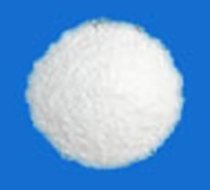While in the past people were willing to pretend concern about what diseases the National Institute of Environmental Health Sciences was willing to correlate to useful products on a spreadsheet, those days are gone. Chemophobia is a luxury for the idle rich, much like organic food or the anti-vaccine movement.
When people do have something to be concerned over, data dredging goes by the wayside. Reality sets in. Science is back to being a force for good.
California and three other states have declared a state of emergency over coronavirus, and people want to know how to protect themselves. No one cares about "organic" label nonsense now, they want to kill stuff.
Fortunately, the products anti-science activists tried to scare us all about in past years still work just fine, and they are still in stores. If you want to protect yourself from Coronavirus, you can do a fun science experiment with your kids and mix two-thirds rubbing alcohol with one third aloe gel, but they are going to wonder why science didn't come up with a better solution than standing around waiting for your hands to dry.
Science did. It goes by names like Lysol and Clorox.

Though sodium hypochlorite is a chemical name, it could be considered "organic" because it existed before 1998, when science stopped happening for Environmental Working Group and Whole Foods and all of Europe. It was created in 1785 by Claude Louis Berthollet and sold by the Javel company. Though France huffed and puffed about banning everything with a chemical in it last month, you can be sure eau de Javel is flying off shelves now.
EPA knows what chemicals actually work against harder-to-kill viruses than SARS-CoV-2, the stuff you want to buy when you don't trust the "natural" claim in some green bottle. They have always known, thanks to the Emerging Viral Pathogen program. Companies provide EPA with data, even in advance of an outbreak, and while environmentalists dismiss those data as "corporate funded studies" they are according to EPA guidelines and quite valuable. You should trust them now, as you always could have unless you donate to Natural Resources Defense Council or insist a weedkiller causes cancer and gay frogs. EPA created emerging viral pathogen guidance for SARS-CoV-2 at the end of January and here is the list of what you should buy if you are at risk. Like with goofy face masks, not everyone needs to go into a panic and subsidize these companies but many of them are products I have always had in my house.
It contains lots of commercial stuff (EcoLab, etc.) but numerous home brands you will recognize, like Clorox, Lysol, and Purell.
It is harmless and fun to create hand sanitizer but you probably should not make your own Clorox. It is "unstable" and the actual company does a great job making a precise solution. If you are in Seattle and not afraid to go to Costco, go buy some science. If coronavirus fizzles out, you can make your clothes whiter.
Meanwhile, here is hoping the shortsell on chemophobia is here to stay.




Comments